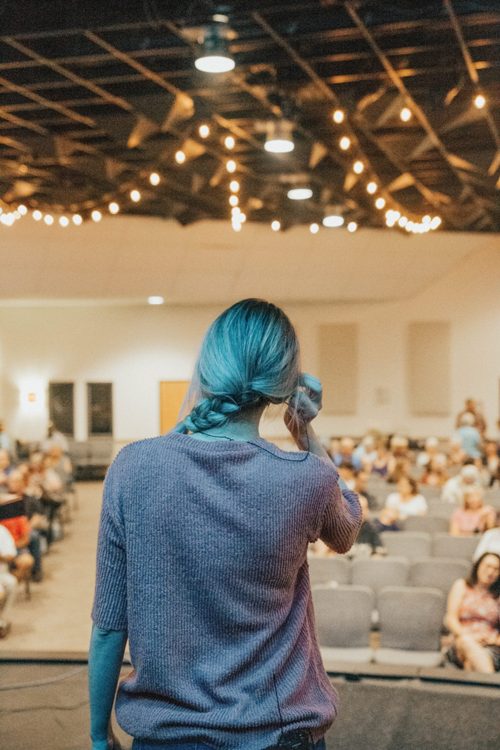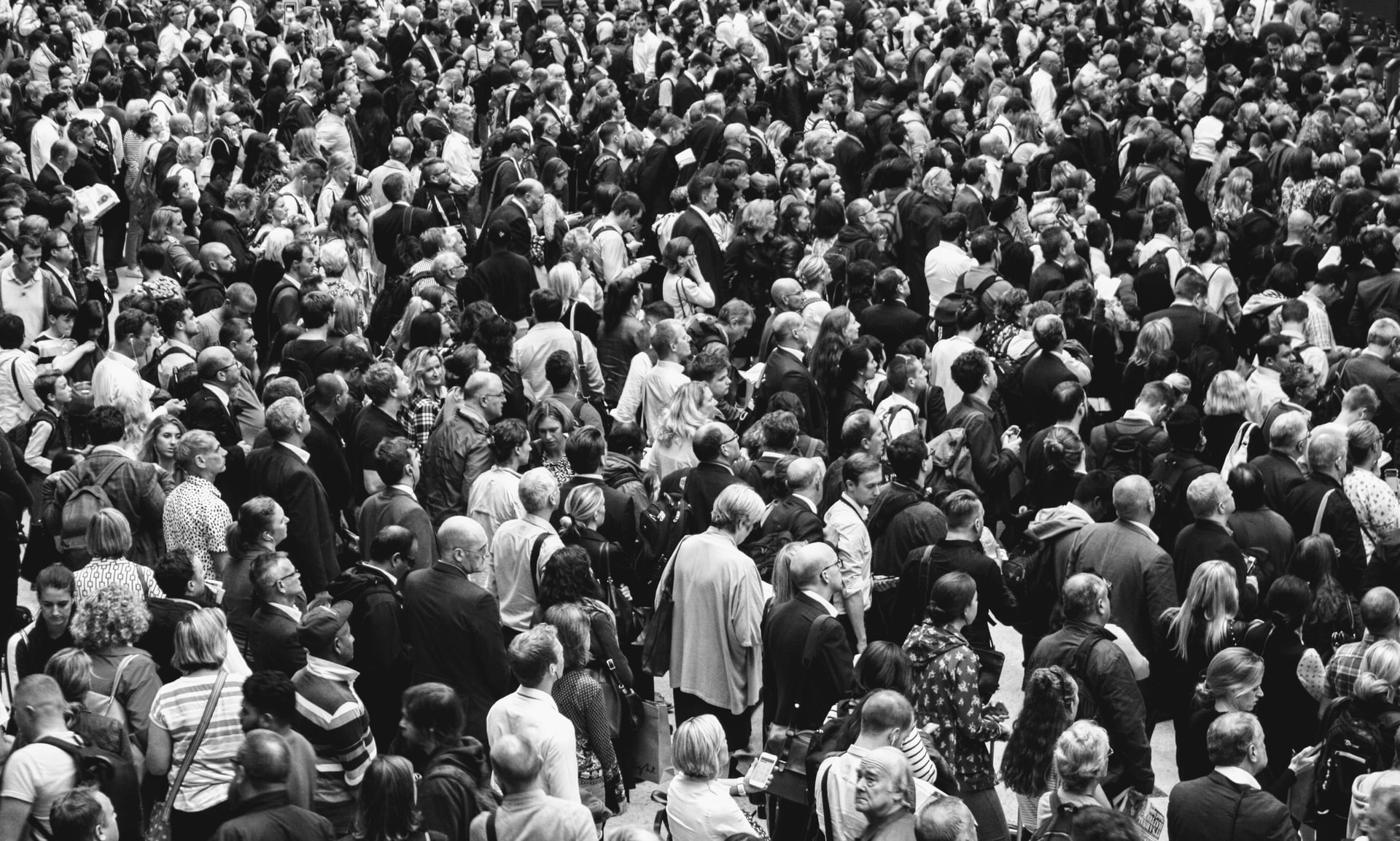 Conversations around anxiousness and stress management are becoming more and more common in our society’s public dialogue. From A-list celebrities talking openly about their mental health struggles, to friends and family admitting how hard it has been to get back to normal after the isolation of early-COVID quarantine, people of every class and creed seem to be experiencing greater feelings of social anxiety and fear than they have before.
Conversations around anxiousness and stress management are becoming more and more common in our society’s public dialogue. From A-list celebrities talking openly about their mental health struggles, to friends and family admitting how hard it has been to get back to normal after the isolation of early-COVID quarantine, people of every class and creed seem to be experiencing greater feelings of social anxiety and fear than they have before.
Many mental and emotional health conditions have been exacerbated by the threats to public health, societal divides, and financial stressors of recent years, and social anxiety is no exception.
More people than ever before are working or learning from home and living largely solitary lives. With this increased isolation has come an increase of people reporting high levels of discomfort in social settings. If you are someone who has recently become more fearful and anxious around others, or who has noticed these feelings becoming more intense and disruptive, you may wonder if your experiences are linked to social anxiety.
While only a mental health professional can provide you with a diagnosis or treatment plan, this article will define social anxiety and Social Anxiety Disorder, discuss the common symptoms and causes, and present some ways for those who are suffering to get help.
What is Social Anxiety?
This is a type of anxiety that stems from the fear of being judged, rejected, or ridiculed by others. Social anxiety causes people to feel fearful of situations in which they might be required to interact with others or be observed by others.
Common situations that may cause it are job interviews, dating, talking to or meeting new people, or public speaking. Symptoms may only present in those situations with higher than normal levels of scrutiny but can also be generalized, triggered by all social interactions. Most people will experience some form of this disorder during the course of their lives.
Social Anxiety Disorder differs from the social anxiety that most people experience. Social Anxiety Disorder, or Social Phobia, specifically refers to intense, persistent, long-lasting feelings of fear and anxiety in social situations, especially when these feelings get in the way of your ability to accomplish everyday tasks.
Those experiencing this type or anxiety may even experience feelings of fear when engaging in common activities like eating or drinking in public, using a public restroom, or interacting with self-checkout or ATM machines while others could be observing them.
This fear of being judged by peers or of drawing negative attention can be so intense that it gets in the way of daily life. People who struggle with this condition may begin to avoid or put off tasks that they must accomplish because the feelings of fear are too great or seem outside of their control. Others may still be able to live their lives normally but may find themselves experiencing overwhelming anxiety while they do so.
Signs and Symptoms
 The symptoms can be split into three categories: physical symptoms, emotional symptoms, and behavioral symptoms. People experiencing social anxiety or Social Anxiety Disorder often display all or some of these signs of distress.
The symptoms can be split into three categories: physical symptoms, emotional symptoms, and behavioral symptoms. People experiencing social anxiety or Social Anxiety Disorder often display all or some of these signs of distress.
Physical signs
- Blushing or excessive sweating
- Trembling or fidgeting or rigid body posture
- Rapid breathing and heart rate
- A feeling of the “mind going blank”
- Nausea or physical illness
- Inability to speak clearly or at full volume
Emotional symptoms
- Intense self-consciousness in the presence of others
- Persistent fear of judgment, rejection, or ridicule by others
- Intense feelings of fear and anxiety around specific social situations or settings, such as meetings at work, eating in a restaurant or attending large events or gatherings
Behavioral signs
- Difficulty maintaining eye contact
- Difficulty meeting or speaking to other people, even when you desire to participate more fully
- Avoidance of situations where you may be the center of attention
- Avoidance of places and activities that may require you to interact with others
- Avoidance of tasks where others may observe you, for fear of embarrassment
 For most people, social anxiety first presents in childhood or adolescence. These children and teens may display behaviors that resemble extreme shyness, such as an intense resistance to reading out loud or placing their own order in a restaurant. They may also appear anti-social, avoiding events and situations that will put them in greater contact with their peers, such as student clubs, sports, or having friends over.
For most people, social anxiety first presents in childhood or adolescence. These children and teens may display behaviors that resemble extreme shyness, such as an intense resistance to reading out loud or placing their own order in a restaurant. They may also appear anti-social, avoiding events and situations that will put them in greater contact with their peers, such as student clubs, sports, or having friends over.
A child struggling with social anxiety may find any excuse to avoid public situations or may become suddenly ill when presented with new or uncomfortable social situations. This anxiety can also cause children and teens to exhibit intense emotional reactions and fear when presented with big changes to the social settings they have learned to be comfortable in. Such big changes could include changing schools, moving cities, or starting unfamiliar activities.
Possible Causes and Triggers
Though much research has been conducted, there is still no definitive answer to the question of why some people develop social anxiety and others do not. There is some evidence that suggests genetics and brain anatomy may play a role in predicting a person’s risk for anxiety disorders.
Data does show that social anxiety, like other anxiety disorders, can run in families, but it is unclear whether this connection is due to DNA, learned behaviors, or a combination of both.
Environment is the one risk factor for social anxiety disorder that experts largely agree on. It is believed that social anxiety can be a learned behavior. Those who went through significantly uncomfortable or embarrassing social experiences in childhood or adolescence may be more likely to struggle with social anxiety.
These experiences could include teasing, bullying, social rejection, or public humiliation. Also, people raised by parents who modeled anxious behavior, or who were overly controlling and protective, may be at greater risk for developing anxiety disorders.
These types of behavior in parents can condition children to perceive danger everywhere. Additional factors such as family relationships, trauma, or abuse can play a role in predicting social anxiety and Social Anxiety Disorder.
Can Counseling Help?
Yes, counseling and therapy can make a meaningful difference in the lives of people experiencing social anxiety. There are many therapeutic approaches that can help improve your ability to process and react to stressors as well as teach you strategies to manage your anxiety.
Social anxiety has generally been treated with traditional “talk therapy,” medication, or a combination of both. A mental health care professional will be able to evaluate your symptoms and goals and help you come up with a plan of treatment that will meet your specific needs.
Tips for Managing Social Anxiety
Whether you have been living with social anxiety symptoms your whole life or a new social demand has triggered these feelings in you for the first time, it is important to know that strategies exist to help minimize the anxiety’s impact on your life.
Speak to someone about what you have been going through. Lean into community support in whatever ways feel comfortable to you. Know that you are not alone in your experiences. Then, try out these tips and strategies for managing the symptoms social anxiety causes.
Practice relaxation techniques and grounding exercises.
Techniques such as breath control, body awareness, mindfulness, or aroma therapy can help those dealing with episodes of social anxiety “find their center” or shift their focus away from the feelings of fear and anxiety. Learning about and using these exercises in moments of increased anxiety can help you return your body to a calmer state before symptoms escalate.
Challenge those negative thoughts and unfounded fears.
If you feel capable of thinking calmly about the thoughts that drive your feelings of fear and anxiety, take a moment to interrogate those thoughts. Ask yourself, “What is the worst possible outcome to this situation that is causing me anxiety?”
Fear can be powerful and unreasonable, but when you are able to think through the stressful situation in a calm manner, you will often find that the feelings of fear and anxiety are out of proportion with any potential for truly negative consequences.
Be cautious of using substances to cope with social anxiety.
When all you want is to feel “normal” or have greater comfort in social situations, it can be tempting to use alcohol, caffeine, or drugs in order to relax or to have more energy in moments that cause discomfort.
While there are responsible and appropriate times to have a drink or fuel up with an energy drink, be aware that relying on any substance to ease symptoms of social anxiety can quickly lead to dependency and addiction. Unhealthy relationships with any substance can cause or worsen anxiety symptoms over time.
Find a counselor and make an appointment.
Social anxiety can make it difficult to think about talking to anyone about what you are going through. It often makes even walking into a new place feel impossible. But take a leap of faith and schedule the appointment anyways. Browse our online counselor directory to find the best fit for you and start getting the help and support you need to make your life more manageable.
“Guest Speaker”, Courtesy of William Moreland, Unsplash.com, CC0 License; “Crowd”, Courtesy of Rob Curran, Unsplash.com, CC0 License; “Project”, Courtesy of Surface, Unsplash.com, CC0 License; “Friends”, Courtesy of Joel Muniz, Unsplash.com, CC0 License






